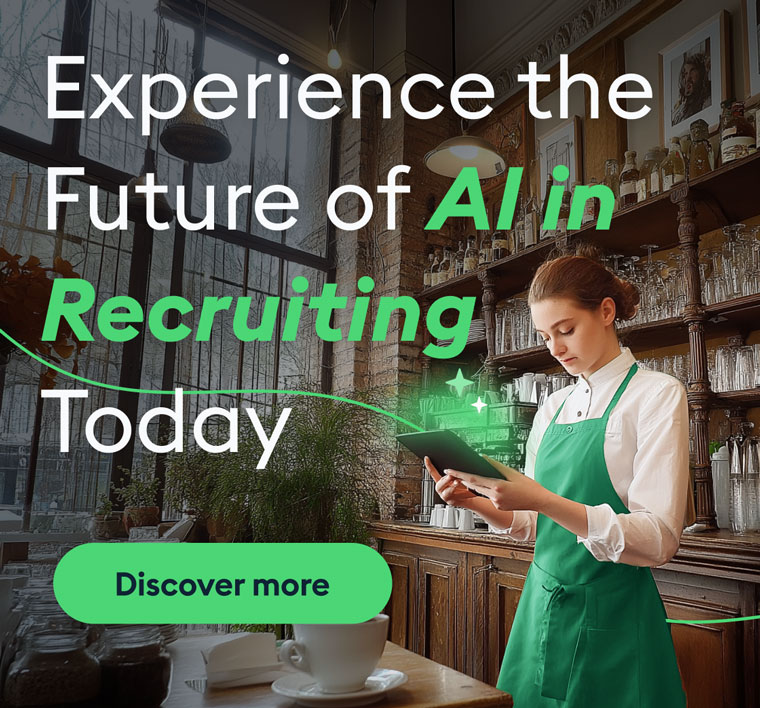What Is a Talent Pool? Benefits for Recruitment
Hiring Success GlossaryIf you’re ever told a job seeker that you would “keep their resume on file for future opportunities,” you probably were describing a talent pool. Today’s talent pools, using advanced recruitment technology such as AI, are valuable for finding and engaging candidates.
Table of Contents- What is a talent pool?
- Who’s in a talent pool?
- Talent pool vs. talent pipelines
- The benefits of a talent pool
- How to plan before you build a talent pool
- Talent pool technology
What is a talent pool?
A talent pool is a database of potential job candidates. The people included in the database are typically qualified and have previously expressed interest in joining your organization.
Talent pools allow organizations to cultivate relationships with workers whose skills and expertise align with company competencies and values. A strong talent pool database contains information about each candidate, including their skills and potential roles they could fill. This way, when a new position opens up, you already have a pool of highly-qualified candidates to recruit from who are already familiar with your organization.
Who’s in a talent pool?
Here are some of the types of individuals who might be in a talent pool.
- Past applicants or “silver medalists” who were not hired for one job but could be great for a future role
- Current employees seeking a new challenge
- Contractors or freelancers
- Employee referrals who have been suggested by your employees
- College students, interns, or recent graduates
- Former employees
Talent pools vs. talent pipelines
A talent pipeline consists of candidates who have already been deemed qualified for particular positions.
A talent pool is a broader group of candidates who have not gone through the full vetting process required to enter the talent pipeline for a specific job.
Building, maintaining, and nurturing a high-quality talent pool helps your organization satisfy both its short and long-term employment needs.
The benefits of talent pools
Businesses that build a talent pool with technologies such as a CRM benefit in multiple ways.
- They ensure an ongoing flow of prospective candidates.
- They build pools of qualified prospects, organized around specific hiring needs, skill sets, or shared characteristics.
- They track the performance of nurture and recruitment marketing efforts.
- They meet regulatory requirements easily with a single candidate record from candidate relationship management (CRM) through to the applicant tracking software (ATS).
- They use AI to help surface candidates that match job descriptions.
- They build their employment brands. For example, Playtech, a technology leader in the gaming industry, used a talent pool to nurture its interns and other applicants to create a more welcoming process for candidates, whether or not they get hired.
How to plan before you build a talent pool
The construction of your talent pool begins with planning. Follow these tips for more effective talent pools.
- Review organizational strategies. Make sure everyone involved with building the talent pool understands your organization’s goals and strategies, such as improving its AI capabilities, launching a new product, or entering a new country. Identify the competencies and skills required in potential candidates to accomplish those strategies and goals. As strategies change, reassess your desired skills and competencies. Continually adapt your criteria to fill your talent pool with candidates who meet the needs of your organization.
- Assess your in-house talent to identify needs. Review how adequately your current employees’ skills meet your business goals.
- Create strategies to close the gaps in-house. In addition to looking externally for competencies that address the needs of your organizational strategy, implement strategies such as training, peer-to-peer feedback, and mentoring to close the skills gap internally. You want to fill the skill gaps between in-house competencies and organizational strategy. Cultivate the employees who best align with long-term organizational goals for future leadership positions and promotion.
- Monitor progress, track results, and adjust. Talent pools should be constantly monitored. As your organizational needs and strategy change, your talent pool should adapt with them.
How to build a talent pool
Once you’ve aligned your talent pool team with broader organizational needs and strategies, build your pool of candidates.
Sourcing varies widely across organizations and industries and should take into account both internal and external candidates. Organizations might source from universities that specialize in relevant degrees or are located near their offices. Fortune 500 companies might outsource the formation of a talent pool to an executive search firm to conduct executive recruiting.
Sourcing also includes strong applicants who ultimately were not hired, as well as current employees, contract workers, former employees, employee referrals, and contingent workers.
AI-driven talent pool technology
Leading applicant tracking systems include CRMs to make it easy to create talent pools without leaving the system.
CRMs help in the early phases of the recruitment process by collecting candidate profiles when there is no job that matches their qualifications. Hiring teams use CRM software to create talent pools that may include past applicants, employee referrals, former employees, and even current employees or current contractors for the company. CRMs work similarly to marketing automation solutions such as Hubspot or Marketo, helping organizations “nurture” candidates by delivering ongoing communications about the organization to keep prospects engaged and inspired by the brand.
The modern, leading-edge applicant tracking systems have an embedded CRM system that leverages artificial intelligence. They incorporate AI to identify candidates that match an open job faster than humans can by reading applications. Embedded AI copilots draft nurture communications to candidates within the CRM, speeding up the work of email writing.
In the future, Agentic AI will include talent pool searches when beginning recruitment for a new role. Companies can get ready for Agentic AI-enabled recruiting by building talent pools now and leveraging the latest recruitment software.



